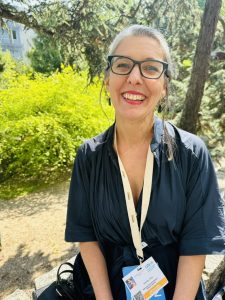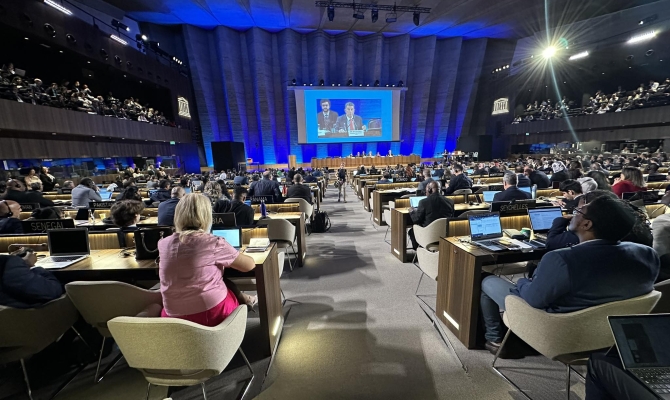Poor science heard during the negotiations for a new Plastics Treaty has caused concern for the Scientists Coalition for an Effective Plastics Treaty.
A group of approximately 240 scientists representing over 250 independent scientists across the world that make up the organisation have been tracking the negotiations. They’re calling for greater participation in the INC process to ensure delegates have access to independent trusted science.
“We have been keeping a record of whenever we hear some of the scientific claims that we know are not correct and not grounded in scientific evidence, some of which comes from delegations with a particular agenda and some from a lack of knowledge about the science,” said Associate Professor Trisia Farrelly, a Steering Committee Member of the Scientists Coalition for an Effective Plastics Treaty.
Dr Farrelly was in Paris France attending the Second Intergovernmental Negotiation Committee to form an internationally legally binding instrument on plastic pollution, including in the marine environment.
“Some things we hear have the potential to derail an effective and comprehensive treaty that the Scientists Coalition and all of us are looking for.”
Invested in ensuring the science is absorbed and understood by those negotiating a plastics treaty, briefs have been developed and are now available on the Scientists Coalition for an Effective Plastics Treaty website. Rapid response for the delegations is also a priority with a special section on their website for negotiators to ask questions and receive a fast response.

Between now and the next INC in Nairobi in November, the Scientists Coalition aim to cooperate with the United Nations Environment Programme to engage better with delegates so they receive science they can trust. The independent academics that make up the Coalition have signed a rigorous Conflict of Interest form declaring that they can produce rigorous science independent of industry, state, or other influence.
“We know there needs to be a science policy interface which could result in a science assessment panel and a socio-economic panel,” said Dr Farrelly.
“We’d like to explore everything that should be included for successful implementation of the treaty. We’d also like to make sure that there is no duplication of work across other Multilateral Environment Agreements. Knowing the scientific evidence around this issue, we know the dangers ahead of us if we don’t tackle the plastic pollution crisis in a way that is grounded in good science. “
For Niue, the complexity of the issue, its impacts upon many different sectors and the interconnectedness of it is overwhelming. While the island nation is implementing projects and activities that revolve around science and the collection of data there is a need to bring it all together and learn how to translate and apply it to the plastic pollution crisis.
“It will be great to have an independent team of experts with our Pacific agencies that we can all rely on to provide that technical advice – even if we had a team of experts that had been verified by our Pacific agencies, so we know that their science is sound and reliable,” said Mr Haden Talagi, Director of Environment for Niue.
“I think each country has their own platform they are working towards, we need to look at our own strategy across the remaining INCs and ensure we have the scientific expertise readily available to us in the Pacific Islands delegations to build our interventions, and national actions, going forward.”
The Scientists Coalition for an Effective Plastics Treaty is committed towards ensuring negotiators have the best independent science to form their decision making. With limited funding, many of the 40 scientists now in Paris are self-funded, making themselves available for all at the INC2.
The second Intergovernmental negotiating committee to develop an international legally binding instrument on plastic pollution, including in the marine environment took place in Paris France from 29 May to 2 June 2023.
The Pacific Islands are represented by the Cook Islands, Federated States of Micronesia, Fiji, Kiribati, Nauru, Niue, Palau, Papua New Guinea, Samoa, Solomon Islands, Tuvalu and Vanuatu through the support of the Government of Australia and the United Nations.
They are supported by the Secretariat of the Pacific Regional Environment Programme (SPREP), working with partners the Pacific Islands Forum Secretariat, Office of the Pacific Ocean Commissioner, Environmental Investigation Agency, Centre for International Environmental Law, University of Wollongong, WWF and Massey University……PACNEWS















